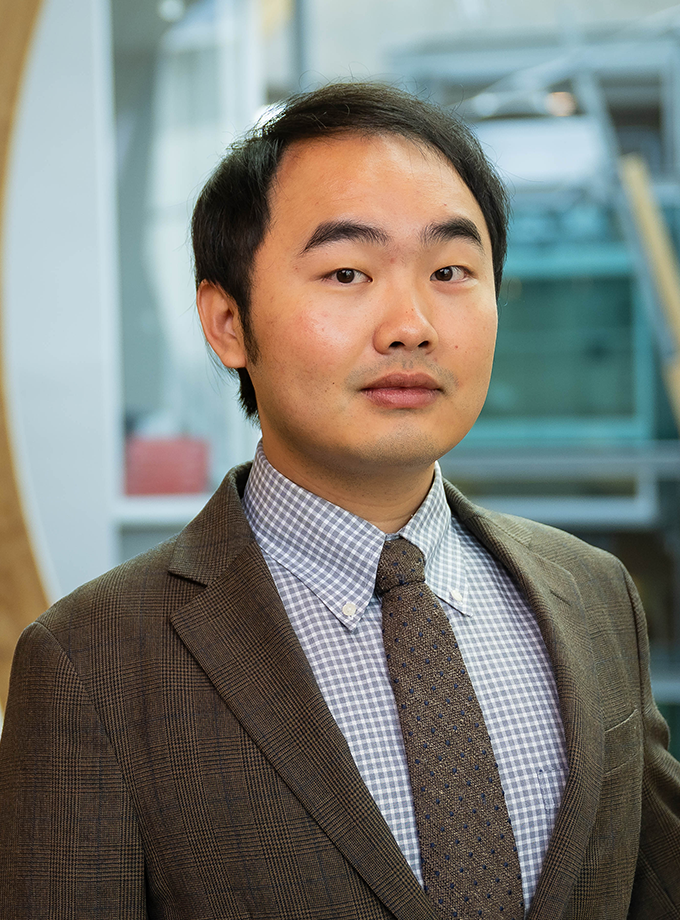Awards and recognition
Dr. Xin Tang awarded Tier 2 Canada Research Chair in Computational Cell Biology

We are pleased to announce that Dr. Xin Tang, our newest Assistant Professor jointly appointed in the Michael Smith Laboratories (MSL) and the Department of Computer Science, has been awarded a Tier 2 Canada Research Chair in Computational Cell Biology. The Canada Research Chairs Program (CRCP) invests approximately $311 million per year to attract and retain leading researchers in their fields across Canadian universities. Dr. Tang is among eight newly awarded Canada Research Chairs at UBC, and will hold his chair until 2030 with the possibility for renewal.
Also announced today, Dr. Tang has been awarded $240,000 in funding from the Canada Foundation for Innovation (CFI) through their John R. Evans Leaders Fund (JELF), providing further support for Dr. Tang to enhance his lab’s research infrastructure.
Dr. Tang’s group builds artificial intelligence (AI) that learns from biological data at the single-cell level to predict cellular behaviour. These AI models link molecules with functions and pathology, and can guide experiments in complete, closed loops.
“Cellular behaviour emerges from dynamic networks of genes, proteins, and physiological signals – networks that evolve across space and time and can cause disease when they fail. Our goal is to make this behaviour computationally predictable to reveal how we can intervene and develop better treatments for various diseases,” explains Dr. Tang.
This work starts with the measurement of cellular composition, functional activity, organization within tissues, and change over time. The AI models developed by the lab then bring this information together to uncover patterns, which in turn help predict how cells will behave and change in the future. The predictions from these models can be used to study biological problems such as aging, cancer and its evasion of the immune system, brain-computer interfaces, and neurodegenerative disease progression.
“Our long-term vision is a living atlas of virtual cells connected to a self-driving laboratory—a closed-loop system where AI predicts cellular behaviour, proposes hypotheses, designs and executes experiments, and learns from the results in real time. This approach will uncover therapeutic insights that would take years, or remain invisible, through traditional methods,” shares Dr. Tang.
Realizing this vision requires people who can bridge between disciplines. A key part of this is training a new generation of researchers fluent in both biology and computation, something Dr. Tang is strongly committed to.
“AI and biology are very different languages, and few people are comfortable in both. Building a team that can bridge this divide is essential, and the support from the CRC allows us to better grow and train that team,” Dr. Tang explains.

Dr. Tang is thankful for the support his CRC will provide in establishing his research program here at UBC.
“For me, this nomination is both an honour and a responsibility. It recognizes the potential of AI approaches to transform biology and improve human health, and offers me the opportunity to pursue long-term, high-risk ideas that could fundamentally change how we study cells and disease,” reflects Dr. Tang.
We wholeheartedly congratulate Dr. Tang on this award, and look forward to seeing where his work leads the field of computational cell biology next.
Quick links:
- Read the Government of Canada’s announcement
- Read the CFI announcement
- Read the announcement on the fourteen new and renewed Canada Research Chairs at UBC
- Learn more about the new UBC Science CRCs focused on software and AI-driven health research
- Learn more about Dr. Tang’s research program